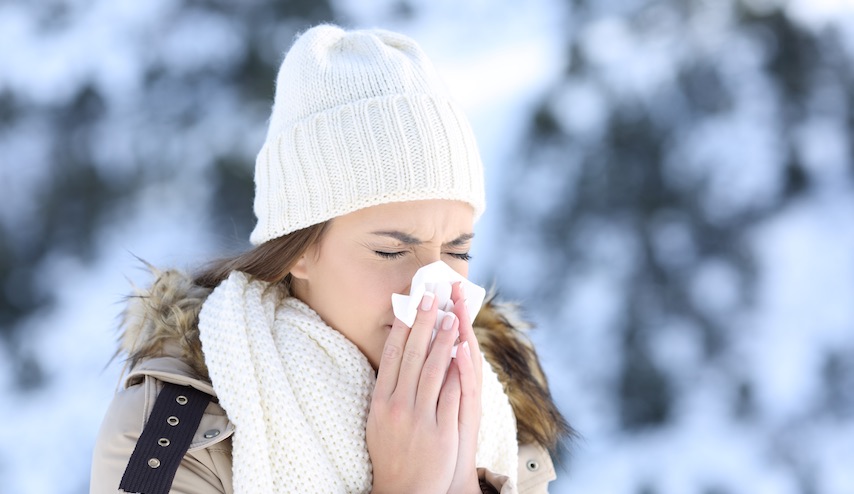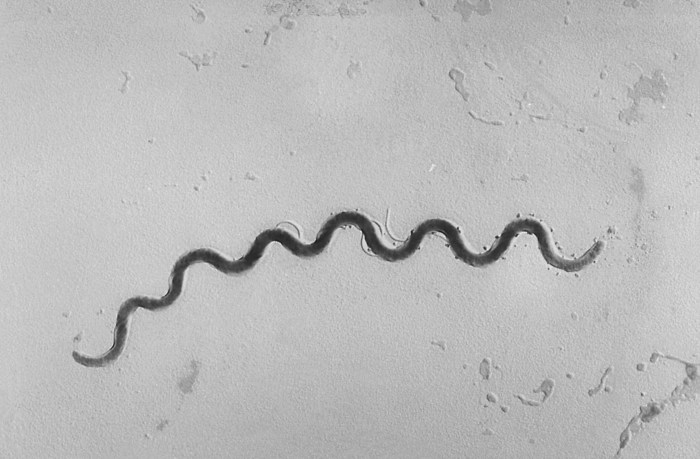In the U.S., we’ve been experiencing the worst flu season in a decade; as of last week, 97 children have died of the illness. Influenza has been grabbing all the headlines, but our eyes, ears, noses and throats experience all sorts of trouble this time of year. We talked to Dr. Gregory M. Levitin, otolaryngologist and director of the vascular birthmarks and malformations program at New York Eye and Ear Infirmary of Mount Sinai, and Dr. Angie Wen, cornea and cataract surgeon at New York Eye and Ear Infirmary of Mount Sinai, about the differences among the illnesses we commonly experience this year, and how best to care for ourselves.
What makes winter “cold and flu season”?
Dr. Levitin: Cold and flu season refers to the winter months when respiratory viruses are most prevalent. Many people are actually sensitive to cold weather, a condition called vasomotor rhinitis, and develop symptoms similar to that of allergic rhinitis, which can occur year-round.
What’s the difference between a cold, flu and rhinitis?
Levitin: Rhinitis refers to any inflammatory condition of the nasal cavity and can be due to allergy, infection or environmental conditions, which results in nasal congestion or obstruction, sneezing, and itchy/runny nose. It can be caused by both allergic (most common) or non-allergic conditions. The most common cause of nasal obstruction is the common cold, or flu, which is due to a virus. Symptoms include a runny nose, congestion and difficulty breathing. [These] can be accompanied by fever, body aches, and fatigue.
How is each treated?
Levitin: A viral infection does not require an antibiotic and runs its course over seven-14 days. One can treat the symptoms with nasal saline rinses and/or decongestants. When taken during the first 24-48 hours, Tamiflu can shorten the duration of symptoms caused by a viral illness.
Sinusitis [a sinus infection] is caused by a bacteria, and when accompanied by a fever is typically treated with an antibiotic for seven-10 days in addition to nasal saline rinses and/or decongestants.
The most common cause of rhinitis is allergic rhinitis, so the best way to treat this is to first try to avoid direct exposure to any known allergens. While this may be practical by avoiding cats or dogs, more common allergens include dust, ragweed, trees and grasses, and are certainly not easy to avoid. … It is possible to effectively treat most symptoms by starting a daily routine using an intranasal steroid spray (such as Flonase or Nasonex) and adding an oral antihistamine (such as Allegra, Claritin or Zyrtec). Daily saline rinses can also help clear the nasal passages of any excess secretions
We see a lot of advertising these days for “dry eyes.” What exactly are dry eyes?
Dr. Wen: The surface of the healthy eye is normally moist, like the inside of the mouth. This is important for clear vision and ensuring the cornea or front surface of the eye gets the necessary nutrients. When there is a defect or deficiency in the tear film, the eyes become abnormally dry. Symptoms can include redness, a feeling that sand or a foreign body is in the eye, blurry or fluctuating vision.
What causes dry eyes, and how can they be treated?
Wen: There are a number of causes, from under-production of tears to poor tear quality, or increased evaporation or loss of tears. The treatment is directed at the particular cause in each individual.
Can a mild case be treated OTC? When should you go to the doctor?
Wen: Initial treatment for mild dry eye include OTC lubricating eye drops. It is best to stay away from “get the red out” type of eye drops, as they can be harmful if used long-term. See an ophthalmologist if there is persistent red eye, decrease in vision or excessive discharge as these can indicate a more serious condition.
How can dry eyes be prevented?
Wen: Stay well hydrated, avoid over-wearing or sleeping in contact lenses. Take breaks when performing prolonged visual tasks, such as reading or computer work.
How does rhinitis, which we discussed above, affect the eyes?
Allergies can cause inflammatory changes in the soft tissues covering the surface of the white of the eyes and inside of the eyelids, and thus can irritate the cornea and be related to dry eye. Also, many decongestants and antihistamines can cause dry eye in the same way that they dry out the mucous membranes of the nose.



















